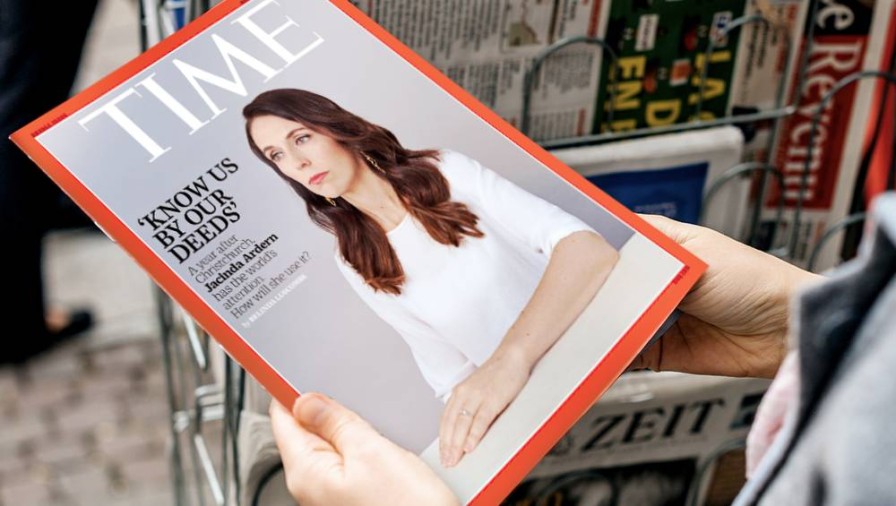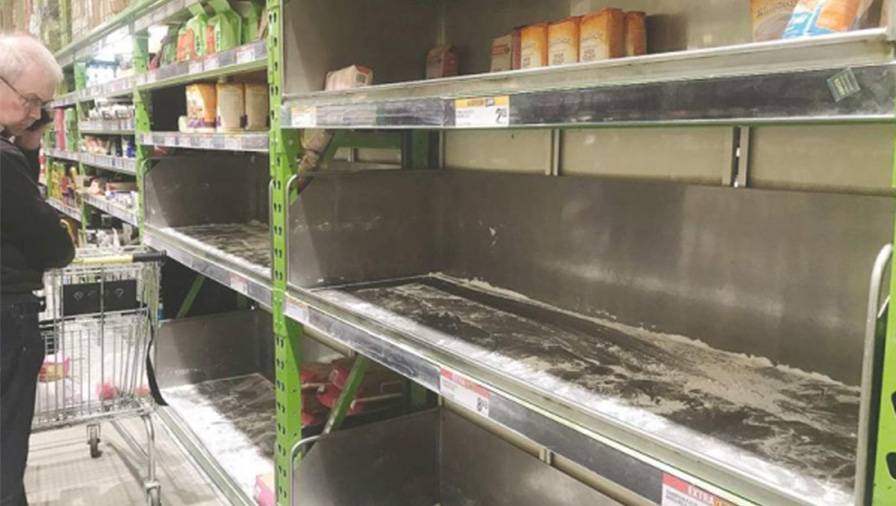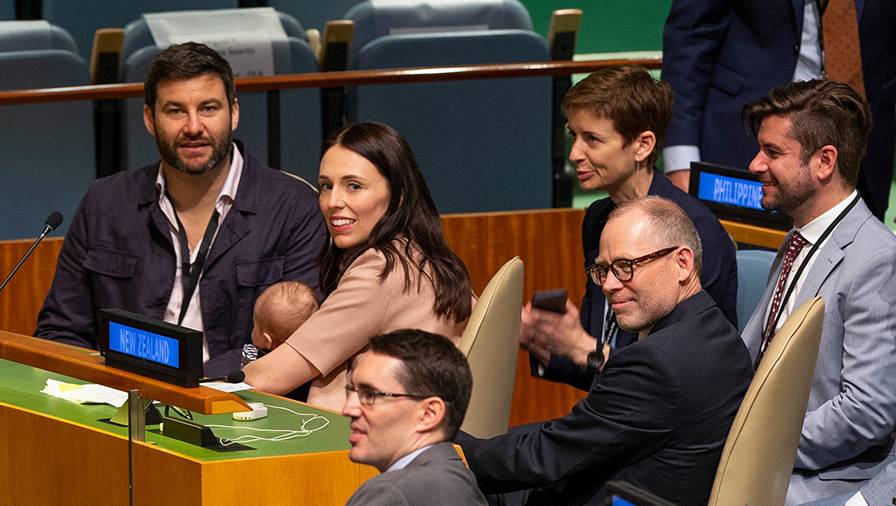Ardern’s star has fallen
OPINION: Her run as Prime Minister must come to an end – my pick is ‘out by Christmas’.
NBR columnist Rachel Smalley speaks with Maria Slade.
OPINION: Her run as Prime Minister must come to an end – my pick is ‘out by Christmas’.
NBR columnist Rachel Smalley speaks with Maria Slade.
If I had to bet my house on it, I would pick Jacinda Ardern to announce that she is stepping down before Christmas. She won’t lead the Labour Party into the next election. She can’t. The announcement must surely be coming.
In November last year, at the Labour Party conference, the party made it easier to enable a mid-term leadership change. In the past, it required a preferential vote weighted between party members, affiliated trade unions, and the caucus. That is no longer the case. If two-thirds of the caucus are in favour of a new leader, he or she can assume the role. There is no longer a requirement for a party-wide election process.
What triggered Labour’s insistence on a new leadership remit? Who could say, but it will allow Ardern to endorse a new leader and, assuming she has the support of two-thirds of the caucus, she can stand aside.
That said, Ardern is still popular. In every political poll, she continues to top the Preferred Prime Minister category, but the recent Roy Morgan poll revealed support for Labour had dropped among women. For the first time since Ardern came to power in October 2017, more women support National (34%) than Labour (33%). The age group driving that shift is women aged 18 to 49, where support for National (30.5%) is now trending well ahead of Labour (26.5%).
On the face of it, there is little incentive for Ardern to seek a third term. At best, Labour will win but lose its status as a single-party majority government. For three years, Ardern has governed without fear or favour, unchecked by a coalition partner. She will have little appetite to enter a tumultuous third term where she will be held to account by her likely coalition partners – the Greens, Te Pāti Maori or, God forbid, New Zealand First.
There is a worse option. Labour will face a heavy defeat next year and Ardern will be forced to fall on her sword. There is no upside to either of these options. Ardern will resign the leadership and pursue her global ambitions where she is most comfortable and most admired – the Northern Hemisphere.
Ardern has achieved all she needs to in domestic politics. In March 2020, Ardern was on the cover of Time under the headline ‘Know Us By Our Deeds’. It was the first anniversary of the Christchurch Mosque shootings. That same month, she announced New Zealand would go into lockdown. 
She led the world in her immediate health response to Covid 19 in 2020, famously announcing she would “go hard and go early”. New Zealanders spent the tail end of a long, hot summer locked down, and Ardern received accolades and plaudits from all over the world.
It was, of course, early days in the Covid pandemic but the decision to lockdown was the right one. In New York, authorities were parking refrigerated trucks outside hospitals to store dead bodies. In New Zealand, we were sharing pictures of sourdough on Instagram. Our biggest issue was getting access to flour and grappling with the intricacies of Zoom.
The worm only began to turn when Delta arrived. 
One of New Zealand’s biggest issues during lockdown was getting access to flour.
And so began a long litany of issues that continue to plague us today. The expensive, overly cautious lockdowns, the botched vaccine rollout, the MIQ ballot system that separated families and left Kiwis stranded overseas, the anti-vaccine and anti-mandate protest that triggered an occupation on Parliament grounds, the immigration failings, the reckless spending, and what will undoubtedly be significant economic and social fallout triggered by Labour’s response in 2021-22.
If Ardern stands down now, these failings will be minimised or, in time, not attributed to her leadership. She will be an undefeated Prime Minister and the first to achieve a single-party majority government in New Zealand. Her legacy will be tied to two events of significant historical importance: her compassionate, unifying response to the March 15 Christchurch Mosque Attacks and her decision to lockdown the country in March 2020. Those two events, one year apart, showcased Ardern at her best.
However, that was then. This is now.
In New Zealand, Ardern’s star has fallen. Her run as Prime Minister must come to an end.
New Zealand now requires a Prime Minister with fiscal and economic expertise. Those attributes do not appear on Ardern’s CV, nor do they feature highly among Labour’s senior Cabinet ministers.
Ardern is not the Prime Minister to lead New Zealand’s economic recovery in 2023. Even she will know that.
There are other mitigating issues too. She is the mother of a young child who is, possibly, her only child. Time is passing quickly. Ardern must also be suffering from an all-consuming exhaustion after leading the country through three years of a global pandemic. And it’s not going to get any easier. Huge reform is under way and public opposition and intense media inquisition will, undoubtedly, reach fever pitch – Three Waters, He Waka Eka Noa, and HealthNZ are just three examples of major policies that will continue to divide and polarise this country.
And Ardern is young. She is 42 years old and a career in global geopolitics beckons. From the moment Ardern was elected, she has attracted the attention and admiration of world leaders. She need only say the word and the global job offers will flood in. And they will do for the next 20 years.
Like every government, Labour was never going to emerge unscathed from its management of Covid-19. The vitriol on social media, the conspiracy theories, the desecration of our immigration system, the seemingly never-ending protests and hikoi, and the incredulous level of frustration felt right across the commercial and corporate world will not subside as long as Ardern and Labour retain power. It is, undoubtedly, the end of the road.
Ardern’s CV and international reputation will be irreversibly damaged if she contests – and loses – a third term. Right now, she is the Prime Minister who took her baby to the United Nations, wore a hijab in Christchurch, preached kindness at Harvard University, and said climate change was the “nuclear-free moment” of our generation.
Jacinda Ardern with Clarke Gayford and baby Neve Te Aroha at UN.
Irrespective of how New Zealanders view Ardern, she is lauded in the United States and Europe. That is where her future lies.
The only issue that may plague Ardern’s conscious is the impact her resignation will have on the Labour Party. If she stands down, who will replace her? Grant Robertson? Chris Hipkins? Michael Wood? Not one of them has the star power of Ardern.
But, in politics, it is each to their own. And when the billboards go up ahead of next year’s election, it is very unlikely that Ardern’s face will be on them. It’s not a case of if she resigns, but when.
And she is surely looking to the northern hemisphere next year and thinking “let’s do this”.
Rachel Smalley is the 5am-6.30am host of First Light on Today FM.
Sign up to get the latest stories and insights delivered to your inbox – free, every day.